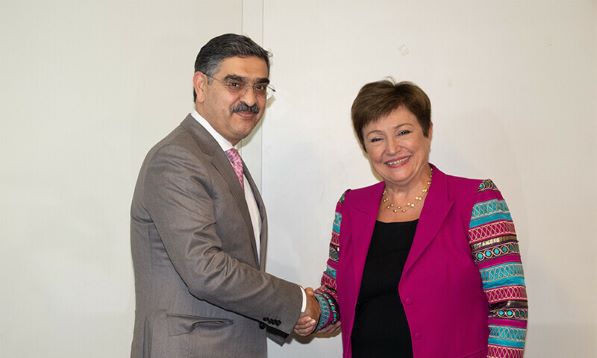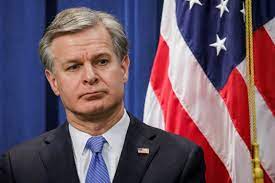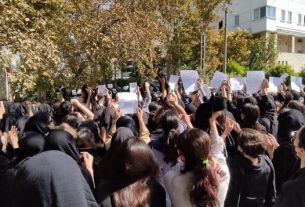International Monetary Fund (IMF) Managing Director Kristalina Georgieva has advised Pakistan to tax the wealthy and protect the poor.
Speaking to a Pakistani private media channel after her meeting with Interim Prime Minister Anwaarul Haq Kakar on the sidelines of the United Nations General Assembly (UNGA) on Thursday, Georgieva said “what we are asking in our programme is that please collect more taxes from the wealthy and please protect the poor people of Pakistan”.
Her comments come amid soaring inflation in Pakistan after the country secured a last-minute bailout from the Fund last July.
“Of course, it is difficult but Pakistan has to do it in line with the IMF programme as we stand by the people of Pakistan,” she said.
To a question, Georgieva said that revitalising Pakistan’s economy is in the interest of its people. “Shortcomings” of the past should be addressed, she urged, refering to reforms the lender has sought in the country.
Later, both PM Kakar and Georgieva took to X, formerly Twitter to share that they had had a constructive dialogue on Pakistan’s economic prospects.
After the $3 billion IMF tranche was secured last July, Pakistan’s year-on-year inflation hit 27.4 per cent, significantly shrinking household budgets. The month of August also saw exorbitant electricity bills leading to nationwide protests. Persistent increase in fuel prices has further burdened the populace.
The caretaker government attempted to first deny the inflated bills as a ‘non-issue’, then made promises of providing some relief but later ruled it out citing Pakistan’s commitments with the IMF.
The Fund, on its part, rejected proposals floated by the interim government to offer some relief to the people amid soaring inflation.
The IMF has rejected the proposals floated by the caretaker government to provide relief amid skyrocketing food and energy prices.
PM for sharing scientific research
Earlier, on the day, Kakar underlined the need that scientific research should be put at the disposal of all humanity, ensuring access to all the scientific breakthrough or discovery which was essential to save human lives, irrespective of the intellectual property rights.
He said that it was a time for the international community to rise to the challenge and ensure better preparedness through legally binding obligations for building resilience against the future pandemics.
Addressing a high-level meeting on prevention of global pandemics, preparedness and response, the prime minister highlighted that the Covid 19 had caught the world with surprise, which killed over 6 million people across the globe and led to the national and global economies lock downs.
But with human ingenuity and power of targeted research the world was fortunate to have developed a vaccine which caused an optimism for the future, he added.
The prime minister said that the pandemic also caused several reasons for concerns in the world including inequity in the vaccine distribution among the rich and poor, resistance by the corporate sector, insisting upon the property rights, hampering the wider preparation of the vaccine and inequality in the financial support mobilized for the rich and the poor countries to recover from the Covid.__Tribune.com





